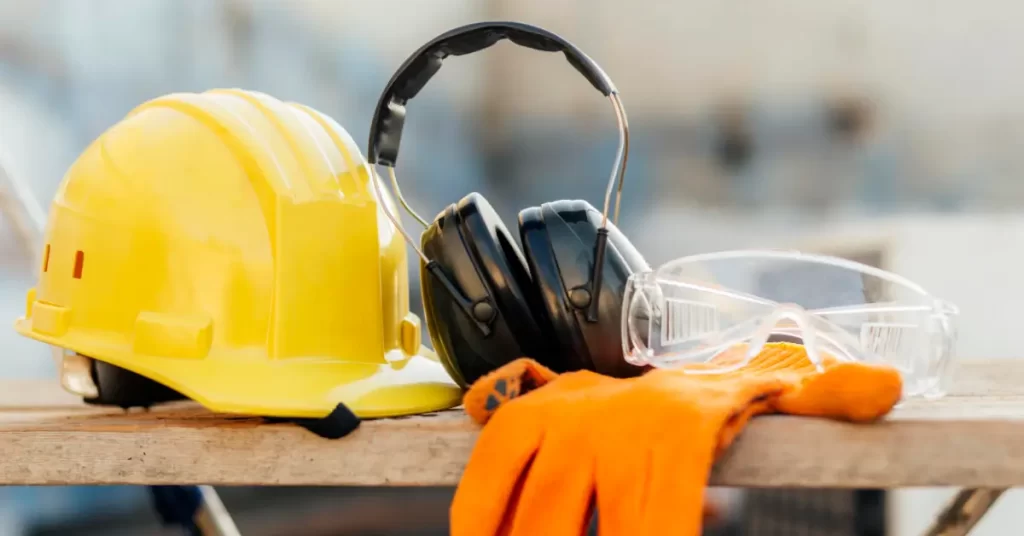Maximizing Safety in Construction: 9 Essential Tips for Workers
The Importance of Safety in Construction Construction is an inherently risky industry, with numerous hazards that pose serious threats to workers and the public. In Kenya alone, there are approximately 1,000 construction-related fatalities reported annually. Given these alarming statistics, it becomes crucial to prioritize safety on construction sites and mitigate potential risks. Why is safety important in construction? Safety holds immense significance in the construction industry for several reasons. First and foremost, it ensures the well-being and protection of workers. Construction sites expose workers to various dangers, such as falls from heights, electrical shocks, and accidents involving heavy machinery. By diligently adhering to safety procedures, accidents and injuries can be significantly reduced. Secondly, safety is essential for the general public. Construction sites are often situated in busy areas where members of the public are at risk of being harmed by falling objects or machinery accidents. By strictly following safety protocols, we can safeguard the public from potential harm and maintain their trust in the construction industry. Lastly, safety plays a crucial role in the financial stability of construction businesses. Accidents and injuries can lead to decreased productivity, escalated insurance premiums, and even legal disputes. By prioritizing safety measures, construction companies can protect themselves from substantial financial losses and maintain a positive reputation within the industry. Trending Amazing Modern Construction Technology for The Future – Videos Included 🔥 Circular Economy Principles in Construction From Blueprint to Reality: How 3D Printing is Reshaping the Construction Industry Maximizing Safety in Construction: 9 Essential Tips for Workers Differences Between Ceramic Tiles and Porcelain Tiles 7 Different Types of Tiles How to stay safe on a construction site To ensure safety on construction sites, there are several key practices that should be followed. Here are some essential tips: Wear appropriate safety gear: Always wear the proper protective equipment, including hard hats, safety glasses, steel-toed boots, and reflective vests. These items serve as crucial safeguards in the event of accidents or mishaps. Follow safety procedures: Adhere to established safety guidelines and regulations. Use the correct tools and equipment for each task, and work in a safe and responsible manner. For example, when using a ladder, ensure it is properly secured and utilized in accordance with safety protocols. Stay aware of your surroundings: Continuously be vigilant of potential hazards, such as falling objects, uneven surfaces, and live electrical wires. Remain cautious and alert at all times. If you are working near a construction zone, be mindful of the possibility of falling debris or objects. Report hazards promptly: If you come across any hazardous conditions or potential dangers, promptly report them to your supervisor. This proactive approach ensures that corrective measures can be implemented promptly, maintaining the safety of everyone on the construction site. Additional tips for staying safe on a construction site Consider weather conditions: Pay attention to the weather and take extra precautions during inclement weather such as rain or strong winds. For instance, wear appropriate waterproof clothing and boots in wet conditions. Avoid working alone: Whenever possible, work with a partner or in a team. Collaborating with others allows for mutual assistance and enhances overall safety. Take regular breaks: Avoid overexertion by taking frequent breaks to rest and hydrate. Adequate rest ensures that you remain alert and focused on the tasks at hand, reducing the risk of accidents. Practice proper lifting techniques: When lifting heavy objects, use proper lifting techniques to avoid strain or injury. Bend your knees, keep your back straight, and lift with your legs rather than your back. If an object is too heavy to lift safely, seek assistance or use mechanical aids. Maintain good housekeeping: Keep the construction site clean and well-organized to minimize potential hazards. Clear debris, tools, and equipment from walkways and work areas to prevent tripping or slipping accidents. Regularly inspect and maintain the site to ensure a safe and clutter-free environment. Recomended Read: Site safety and fatalities. Frequently Asked Questions (FAQ) What are the common hazards in construction sites? Common hazards in construction sites include falls from heights, electrical accidents, heavy machinery incidents, falling objects, and exposure to hazardous materials How can construction workers protect themselves from accidents? Construction workers can protect themselves by wearing appropriate safety gear, following safety procedures, staying aware of their surroundings, reporting hazards, and receiving proper training. What safety measures should be taken on construction sites to protect the public? Safety measures on construction sites to protect the public include securing work areas, using barricades or warning signs, preventing falling objects, and minimizing noise and dust pollution. How can construction businesses mitigate financial losses due to accidents? Construction businesses can mitigate financial losses by implementing strict safety protocols, providing comprehensive training to workers, maintaining proper insurance coverage, and conducting regular safety inspections. What should I do if I witness a safety hazard on a construction site? If you witness a safety hazard on a construction site, immediately report it to your supervisor or the designated authority. Prompt reporting ensures that corrective action can be taken to prevent accidents and ensure overall site safety. Find Fundis in Kenya
Maximizing Safety in Construction: 9 Essential Tips for Workers Read More »


